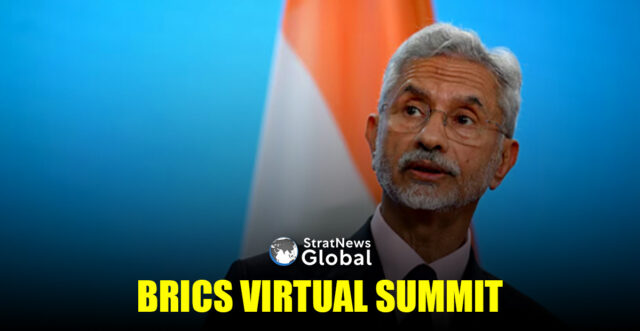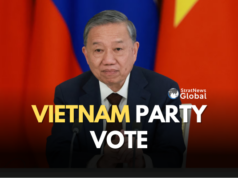External Affairs Minister S. Jaishankar will represent India at a virtual BRICS summit scheduled for Monday, the Ministry of External Affairs (MEA) confirmed in New Delhi on Friday.
The meeting, convened by Brazilian President Lula da Silva, is aimed at addressing U.S. tariff measures, with India formally announcing its participation.
The gathering, almost certain to provoke unease in Washington, comes on the heels of Prime Minister Narendra Modi’s visit to China for the SCO summit, where he held conversations with Chinese President Xi Jinping and Russian President Vladimir Putin — a development that drew criticism from U.S. officials.
At present, Brazilian authorities have not revealed how many of the 11 BRICS members will participate in Monday’s summit or at what level.
Immediately after the U.S. imposed tariffs on August 6, Lula telephoned Prime Minister Modi and pledged to consult each BRICS nation individually, in an effort to marshal support and draft a “common” strategy to respond to Washington’s move.
On Friday, Kremlin spokespersons confirmed that President Putin would join the virtual summit, while sources indicated that other confirmations from member states were expected over the weekend.
Jaishankar To Participate
“From India’s side, it will be the External Affairs Minister, S. Jaishankar, who will participate,” MEA spokesperson Randhir Jaiswal told reporters at the weekly briefing.
“This BRICS summit is at the leaders’ level,” he said, though he declined to explain why Prime Minister Modi himself would not be attending the meeting.
India will assume the BRICS chairmanship next year and is scheduled to host the summit of the expanded grouping, which now includes Brazil, Russia, India, China, South Africa, along with six new members — Egypt, Ethiopia, Indonesia, Iran, Saudi Arabia, and the United Arab Emirates.
The Brazilian Ministry of Foreign Affairs has not yet issued a detailed agenda for Monday’s meeting.
However, local reports suggest that the discussions will focus on the economic impact of U.S. tariff policies on global trade and explore collective approaches to reinforce multilateralism in order to mitigate the consequences of unilateral economic actions.
Currently, both Brazil and India face the heaviest U.S. levies, with tariffs exceeding 50% — the steepest imposed worldwide.
China and South Africa have been subjected to 30% duties, while Indonesian exports face tariffs of 19%, though exemptions apply to its key agricultural commodities such as palm oil, cocoa, and rubber.
Other BRICS nations, including Russia and Iran, already heavily sanctioned, fall into the lowest tariff category of 10%.
According to U.S. officials, the elevated tariffs were applied for several reasons beyond trade deficits and market barriers.
Trump’s Tariff Salvo
India was penalised for its purchase of Russian oil, Brazil for the legal proceedings against former President Jair Bolsonaro — a close ally of Donald Trump — and South Africa for its controversial land reform laws, which Trump alleges discriminate against White Afrikaner farmers.
In July, Trump further threatened an across-the-board 10% tariff hike on all BRICS countries if they pursued what he labelled “anti-American policies.”
Meanwhile, Senator Lindsey Graham, a key Republican ally of Trump, introduced the Sanctioning Russia Act, 2025 in the U.S. Congress.
The proposed legislation would authorise punitive tariffs of up to 500% on BRICS members, including Brazil, India, and China, if they continue purchasing Russian energy supplies.
(With inputs from IBNS)





